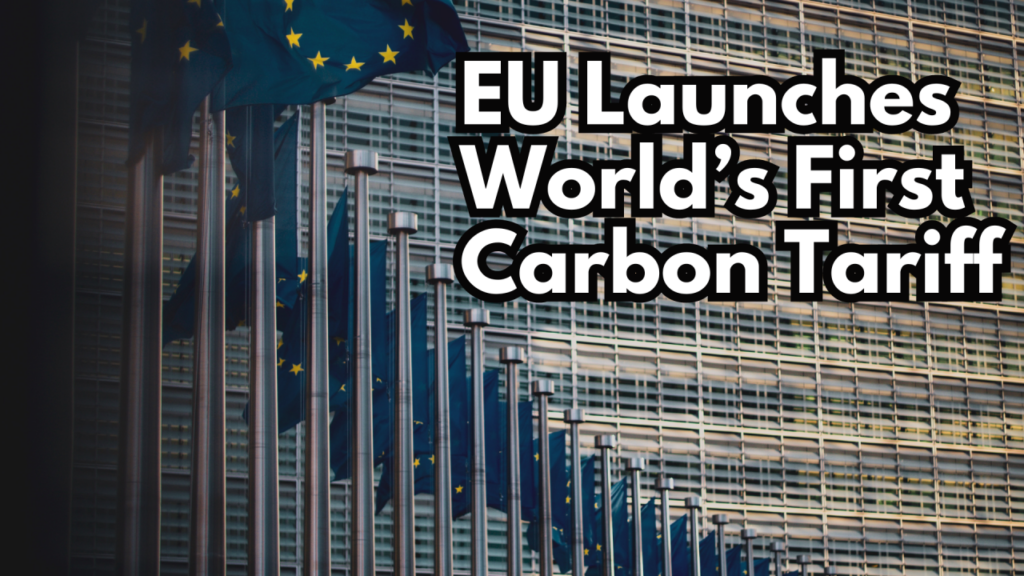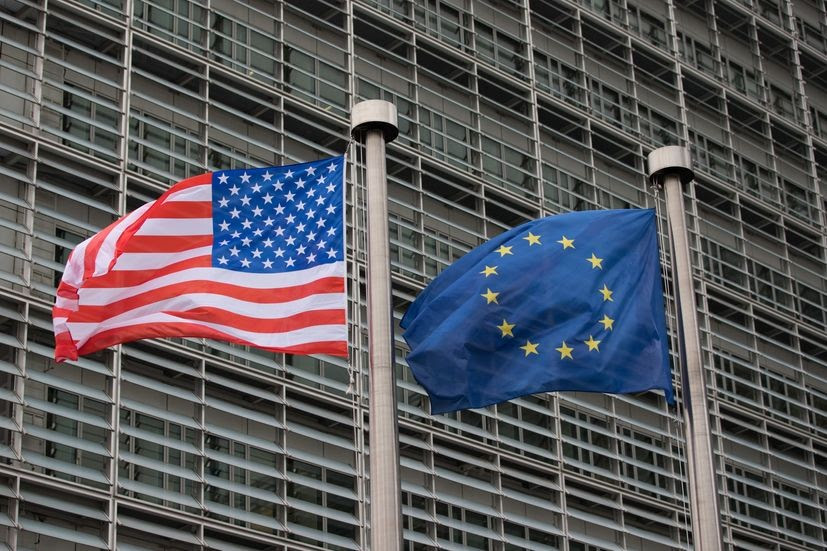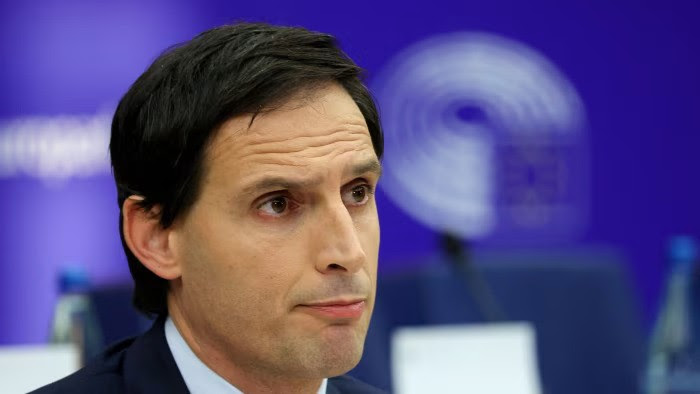Tim Mohin: EU Launches World’s First Carbon Tariff

|
Listen to this story:
|
The EU has officially launched the first phase of its Carbon Border Adjustment Mechanism (CBAM), the world’s first carbon tariff.
The first phase of the CBAM targets imports of emissions-intensive products, including iron, steel, cement, aluminum, electricity, fertilizers, and hydrogen. If imported materials in these categories have higher carbon intensity (the emissions associated with producing the material) than similar EU products, the importers will have to buy certificates from the European Emissions Trading System (ETS) to cover the excess emissions.
The tariff could eventually cover 2.5% of global emissions and could raise more than US$80 billion per year by 2040. This initial phase, which began on October 1st, means EU importers will have to start collecting data on the embedded emissions and report by January 31st of 2024. Companies will be fined up to 50 euros per ton of CO2 if they don’t report.
However, companies will not have to start paying the tariff until 2026. The payments will be in line with the fees EU companies pay under the EU’s Emissions Trading System (ETS). The goal is to put producers from outside the EU on an even footing as EU manufacturers, incentivizing them to decarbonize and to stop ‘carbon leakage’ – i.e., when EU companies offshore their operations to places with less stringent emissions rules.
Exporter countries like China and Ukraine say that the cost of adapting to products with lower emissions is too high and will affect how competitive they can be in the EU market, undermining free trade. European Economy Commissioner Paolo Gentiloni says that is not the aim, “CBAM is not about trade protection. It is about protecting the EU’s climate ambition – and seeking to raise the level of climate ambition worldwide.”
In the UK, Prime Minister Rishi Sunak was criticized for weakened climate policies. A new article noted that the rollback caused the UK price of carbon to plummet and, with CBAM, UK companies will be siphoning hundreds of millions into the EU, which would have been filling UK treasury coffers. Marcus Ferdinand of Veyt said, “UK industry will still be paying for emissions on exports to the EU, but instead of taxes going to the Treasury, they will be heading to Brussels.”
Could The U.S. Be Next?

In the highly polarized politics of the US, carbon import tariffs enjoy rare bi-partisan support. Senator Bill Cassidy (R-LA) introduced a bill earlier this year called the “Foreign Pollution Fee,” aimed at giving domestic U.S. manufacturers a helping hand against cheap Chinese imports.
Cassidy said the legislation “would curtail China‘s ability to undercut U.S. manufacturers by penalizing China for not meeting the same reasonable environmental standards to which domestic manufacturers are held.”
Democrats released a similar bill, the “Clean Competition Act,” which would also charge domestic companies if their emissions were above industry averages. Also, the bi-partisan “PROVE IT Act” would study the carbon intensity data of U.S. industries compared to other countries as a precursor for a future carbon tariff.
With a leadership crisis in the US House of Representatives and a looming budget deadline, this issue isn’t likely to break through any time soon.
Related Article: The European Union launches First Phase of World’s First Carbon Border Tariff
New Climate Chief Wants EU To Go Further

Former Dutch ForeignMinister and Shell employee Wopke Hoekstra looks set to become the next EU climate chief. After receiving a grilling from the EU’s environmental committee about his links to oil and gas and commitment to climate change, he made his position clear: “Fossil fuels must become history, the sooner the better.”
Hoekstra and Maroš Šefčovič-who is leading the Commission’s work on the European Green Deal-aim to expand on the EU’s climate ambitions. Hoekstra has suggested introducing a global kerosene tax (a fuel used in aviation) to help build funds for the long-promised “loss and damages” fund. “I want to explore an international kerosene tax, a maritime levy, a fossil fuels tax, even a share of [the EU emissions trading scheme] proceeds — no stone should be left unturned,” said Hoekstra. Both Hoekstra and Šefčovič would also support an EU target of cutting emissions by at least 90% by 2040.
This Smart Read article is contributed by Tim Mohin, Global Sustainability Leader, BCG.
Every week ESG News delivers smart commentary from ESG practitioners and experts to unpack issues of the week.








